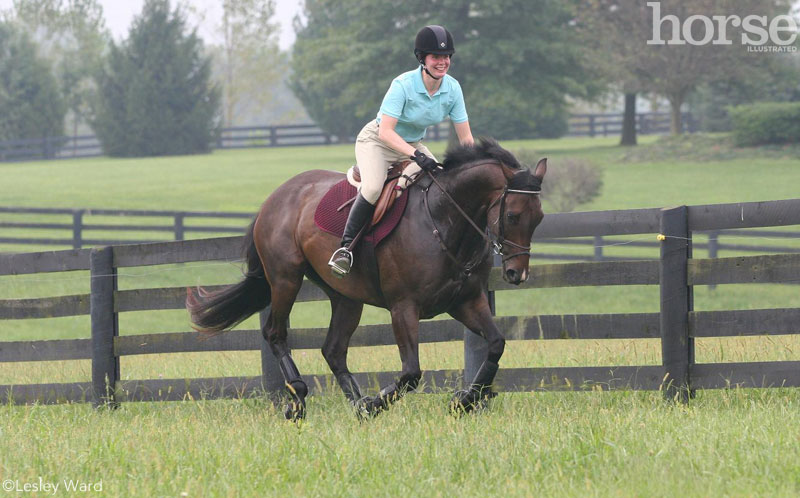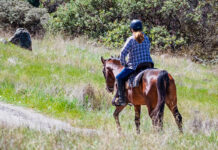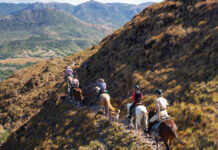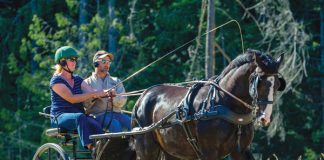Conditioning a performance horse for work is an art and requires good judgment on the part of the rider. You need a fine-tuned feel for how much and how soon to increase a horse’s work to build up its strength and endurance.

The gait used on hill work will also affect the horse’s development. Start off slowly, and have your horse already warmed up so as not to injure soft muscles. An out-of-shape muscle may pull or tear if subjected to sudden stress. As the horse becomes more fit and its muscles, tendons, ligaments and joints are able to take it, you can increase the speed.
Walking or trotting up hills is ideal for strengthening the lower leg, and the thigh and gaskin of the hind leg. A gallop uphill works the muscles in the rump. This should not be overdone, however, and should be attempted only after the horse is already quite fit.
When trying to improve a horse’s coordination and strength for handling uneven ground or inconsistent footing during strenuous performance, do some traveling across the sides of hills as well as up and down them. Side work can do a great deal to improve a horse’s coordination and balance, and is one of the best exercises you can give a horse in preparation for many types of athletic competition.
When going around the face of a steep hill, especially if the footing is a bit uneven or loose, the horse must develop more dexterity and coordination, picking up each leg and moving it around the other, perhaps having to scramble a bit if its feet are sliding. This improves agility and teaches the horse to balance itself to its best advantage. An agile horse is less apt to strain a leg or fall down when footing is unpredictable.






I love hill work!!!!!!!!!!!!!!
My horse had a bad stifle and now she is stronger than ever. She was bucking because cantering on the right lead was hurting her. Now she has a wonderful smooth canter and now is sound and healthy.
Helpful and interesting. My TWH prefers to get up the hill asap…guess I should slow him down to start with.
I live next to an overgrown gravel pit. There are 6 or more hills with different lengths and steepness. I start on the small hills first then work my way up to the steep ones. I even have a deep sandy hill. I teach them to rock back on their hind quarters when going down. I need to feel the hind quarters rocking sideways, then I know they are going down safely and correctly. I can give my horses an incredible work out in 45 minutes. When I trail ride with my friends my horses are always in the best condition.
great article, thanks!
this article was very helpful. My horse loves to do hill work, but like Karol’s TWH, he likes to gallop up hills, and he bolts a LOT. Maybe doing more slow hill work and riding on the side of hills will help discourage that!
Endurance ridng is something I alway wanted to try. I will have to give it a try, and start conditioning my horses for it. Good start is to start reading up on it.
Thanks, Good article…
Good idea